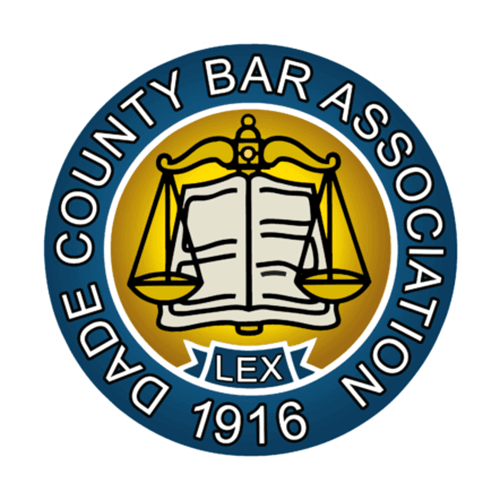Miami Car Accidents Involving Self-Driving Cars
According to Business Wire, there will be millions of self-driving cars on the roads in the future. You may have even seen a self-driving car already and not have known it. Car manufacturers and other technology companies are in a race to create the first and best autonomous vehicles. However, accidents are a possibility with self-driving cars. The injuries that the victim may suffer are no different than they are with a human operator.
When a victim gets hit by a self-driving car, they may deserve financial compensation. In some ways, cases involving self-driving cars are the same as they are in cases with drivers. However, some unique laws and rules apply to claims that involve self-driving cars. Our Maimi car accident attorneys explain what you need to know.

Self-Driving Car Accident Claims
Car accidents that involve self-driving cars may give rise to a legal claim for financial compensation. The claim may be against the manufacturer of the vehicle. It may also be against someone responsible for maintaining the vehicle or a human operator.
The type of legal claim that you file may be different than a claim that is appropriate in a case with a human driver. However, you may deserve financial compensation for medical bills, current and future lost income, pain and suffering and other losses. An attorney for car accidents involving self-driving cars can represent you in the case.
Are Self-Driving Cars Legal In Florida?
Yes, self-driving cars are legal in Florida. Under Florida law, it is legal to use or place into motion a self-driving vehicle. Florida law 316.85 states that a human operator is not required to operate a fully autonomous vehicle in the State of Florida. A self-driving car may operate with or without a person inside the vehicle. Florida law 316.003 defines a fully autonomous vehicle as a vehicle designed to work without a human operator.
Florida Self-Driving Cars Laws
There are various Florida self-driving cars laws, including:
- Florida law 316.003 – Defines autonomous vehicles and fully autonomous vehicles
- Florida iaw 316.85 – Allows autonomous vehicles to operate in Florida with and without humans present in the vehicle
- Florida law 95.11 – Creates time limits and solidifies a cause of action in case of injury caused by self-driving cars
- Florida common laws – Establish legal liability for a variety of defects in self-driving cars that result in injuries to victims
Which Companies are Working on Self-Driving Cars?
Here are just some of the car companies working to put self-driving cars on the roads:
- Tesla
- Ford – Argo AI
- General Motors Cruise Division
- Waymo
- Baidu
- Apple
- Daimler
- Uber Advanced Technologies Group
- Lyft
A variety of motor vehicle and technology companies are involved in autonomous vehicle development. Any of these companies may be legally liable if they are responsible for a car accident that involves a self-driving vehicle.
Legal Liability for Self-Driving Cars
Legal liability for self-driving cars may take many forms. Here are some of the ways legal liability may apply in the case of a car accident with a self-driving vehicle:
1. Poor Design
Ultimately, manufacturers of self-driving cars have the legal obligation to make sure that their vehicles are safe. If their technology doesn’t work properly, the consequences can be deadly. Even though all manufacturers want to put out the first and best self-driving cars, they have to take the time to ensure that their design functions correctly.
If a vehicle has a poor design, it can cause an accident to occur. In fact, accidents caused by poor technology is a leading concern for the public when it comes to autonomous vehicles. A design defect can make the vehicle company legally liable when an accident results.
2. Manufacturing Defect
A manufacturing defect can occur when a self-driving vehicle isn’t made according to the intended design. When there are errors during the time the vehicle is being made, it may result in inherent defects. Some manufacturing defects are unique to the vehicle. In other cases, several vehicles are defective. When a manufacturing defect occurs, the car doesn’t turn out how the maker intended for it to function. The result may be an accident and potential legal liability.
3. Inadequate Instructions
A company that makes self-driving cars has to give the user instructions to use the vehicle properly. Whether the car is fully autonomous or has driver-assist technologies, the maker must provide enough information so that the owner can use it properly. Inadequate instructions can cause accidents. When an accident occurs, the vehicle manufacturer may be to blame.
4. Human Error
Even if a self-driving car can function autonomously, there is still a human element. If a person takes an action that creates an accident, it is the human that may be legally liable. Negligence laws still apply even as self-driving cars become more popular. The same standards of reasonable behavior still apply to the owner and users of self-driving vehicles.
5. Poor Maintenance
The owner of a self-driving car has the duty to maintain it properly. If an accident can be traced to a failure to ensure that the vehicle is properly maintained, that can be grounds for legal liability. Improper maintenance is a form of negligence. It can take the form of missing routine maintenance, or it might mean not addressing specific issues as they arise.
Self-Driving Cars Legal Issues
There are a number of issues surrounding self-driving cars and compensation for accident victims. The victim has an obligation to prove who is responsible for the accident. In the case of a product defect, they have to show only that the car is defective; they do not have to prove why it is defective or show that the vehicle manufacturer acted negligently. In any case, to receive compensation, you must take action.
Miami Attorneys for Accidents With Self-Driving Cars
If you’ve been injured in an accident involving a self-driving car, you have legal rights. Our Miami car accident lawyers can help you exercise your rights and win financial compensation. Let our team of experts examine the complex and novel issues and fight on your behalf. Contact us today for a free consultation.






